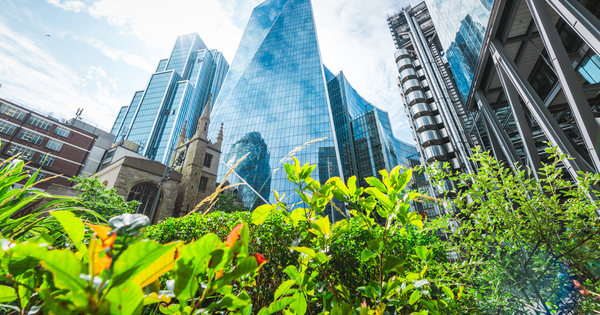
Study: Four-in-five corporate execs confident carbon targets will be met
Business Green 1 year ago

layersDaily Sustainability Digest
Published about 23 hours ago
The global focus of sustainable construction is shifting from experimental pilot projects to systemic transformation. UN scientists’ warnings of a potential “water bankruptcy” are accelerating efforts to integrate environmental sustainability in construction planning. Developers in drought‑stressed regions of the Mountain West are testing integrated models where land, hydrology, and ecology drive growth strategies that reduce the carbon footprint of construction, municipal infrastructure demand, and water dependency. This approach aligns with life cycle thinking in construction, ensuring projects design-in water efficiency and resilience from the outset.
Show MorearticleFeatured News

Westminster adopts retrofit first policy
25 days ago

Vanishing Wild: The Battle Against Illegal Wildlife Trade
16 days ago

The Problems With a Fragmented Global Energy Transition
16 days ago

Equipment up for auction following Warwick Ward closure
17 days ago

Trump attacks Europe's wind farms, demands 'immediate negotiations' to acquire Greenland
17 days ago

New year, new home for Trafford residents as £18.2m development completed
17 days ago
play_circleFeatured Videos

Le greenwashing c'est quoi ? Tactiques & exemples
4 days ago

Why Everyone Gets Heat Pumps Wrong
4 days ago

Why Sustainability Fails Without Behaviour
8 days ago

Social hållbarhet – 5 principer för motståndskraftiga samhällen
10 days ago

Creating a circular economy for critical minerals
11 days ago

AJ Retrofit Live 2025
11 days ago
podcastsFeatured Podcasts
![[189] – Climate Fresk (and friends) with Ash Goddard](img/whole-life-carbon.jpg)
[189] – Climate Fresk (and friends) with Ash Goddard
14 hours ago

Regenerative Agriculture at Scale with Tom Brennan at McKinsey - Part 1
3 days ago

Making Zero-Carbon Pencil (Without Killing the Pro Forma) with Fin MacDonald
3 days ago

Water Monitoring Strategies with Watts Water Technologies’ David Benaiges
4 days ago
![[188] Money, money, money! With Lisa Stanley-Mann](img/whole-life-carbon.jpg)
[188] Money, money, money! With Lisa Stanley-Mann
8 days ago

Returning Guest: Sustainability Visionary Alicia Silva Villanueva on Greening Stadiums,...
10 days ago
Get your opinion heard:
Whole Life Carbon is a platform for the entire construction industry—both in the UK and internationally. We track the latest publications, debates, and events related to whole life guidance and sustainability. If you have any enquiries or opinions to share, please do get in touch.
WLC Assistant
Ask me about sustainability











